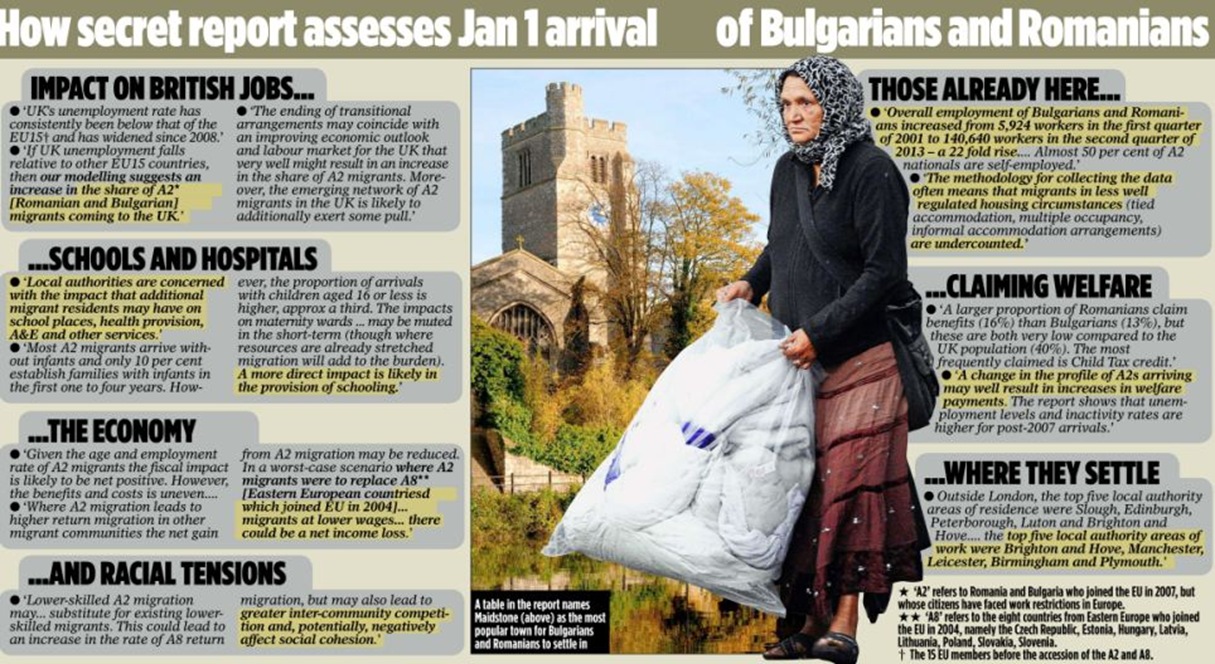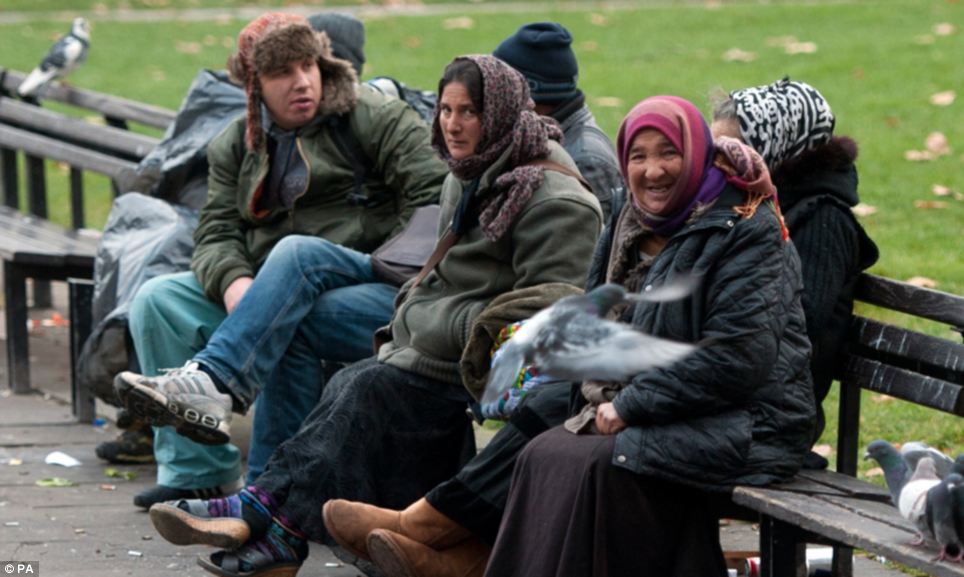Daily Mail
December 31, 2013

Bulgarians and Romanians will flock to Britain in far greater numbers than forecast as our economy races ahead of the rest of Europe, a secret report predicts.
After immigration controls are lifted this week, Britons could find their jobs are squeezed in some areas – while community tensions could rise as the new wave of migrants fight for work with other Eastern Europeans who have been settled in Britain for a decade, it suggests.
The Home Office-funded review – obtained by The Mail on Sunday – also suggests that the UK could lose out financially if low-paid Bulgarians and Romanians drive out Poles on higher wages, who pay more tax.
From Wednesday, Bulgarians and Romanians, known as A2 migrants, will have the same rights as other EU citizens to live and work throughout Europe, but Britain is likely to be seen as more attractive than other countries struggling to make an economic comeback.
The authoritative report by University of Reading academics was commissioned ahead of the change by a group of 74 councils in the South East of England, working with the UK Border Agency, police and health services, but has not been officially publicised.
Obtained under a Freedom of Information request, the 40-page report reveals that migration overall was likely to be beneficial to the UK but warns that:
- In some regions, employment for British-born citizens has declined while jobs for ‘not UK-born other white residents’ [mainly Eastern Europeans] have increased – suggesting this gap could get worse.
- Already overcrowded schools will struggle to find places for the children of the new arrivals.
- Overstretched hospitals risk coming under fresh strain, and the housing crisis could get worse.
- The cost to taxpayers of state handouts, such as Child Benefit, could go up.
- Town halls may fail to collect enough council tax from new immigrants to pay for the extra services because they often crowd into one home and have ‘makeshift accommodation arrangements’.
- Bulgarians and Romanians could compete for the jobs of previous immigrants such as Poles, ‘negatively effecting social cohesion’.
The Government has refused to say how many Romanians and Bulgarians it expects to come. The new report also gives no figures but suggests the recent growth in jobs in Britain, and lengthening dole queues elsewhere in Europe, will encourage more to come here than might be anticipated on previous trends.
The study drawn up for the South East Strategic Partnership for Migration says that immigration restrictions ‘are ending when employment across the EU is changing,’ which could have an impact on migration patterns.
